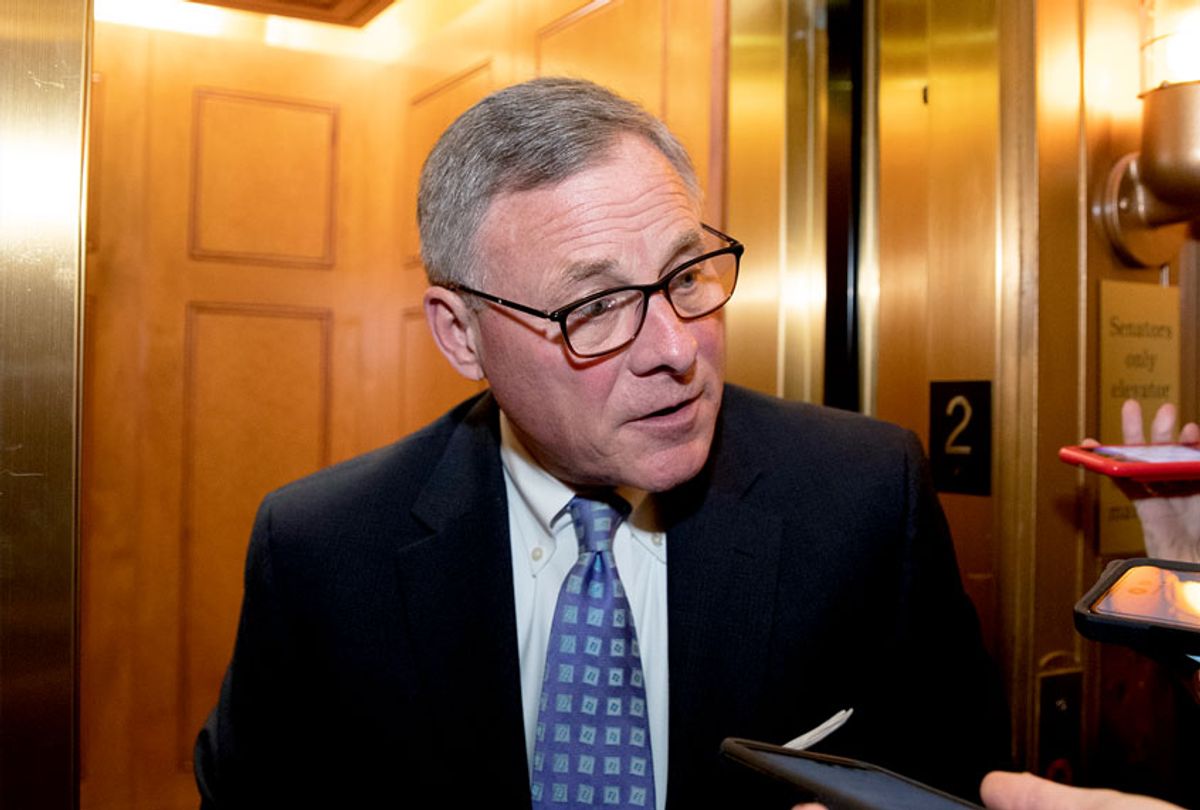Sen. Richard Burr, the 64-year-old North Carolina Republican who heads the Senate Intelligence Committee, has been inundated with bad publicity in recent weeks. Tim Mak of National Public Radio (NPR) reported that on February 27, Burr privately warned a local business group that coronavirus could be "akin to the 1918 pandemic" — although he wasn't saying that publicly at the time. And Fox News' Tucker Carlson, on March 19, called for Burr's resignation over reports that he sold a significant amount of stock weeks before the pandemic caused the market to crash.
Yet Burr remains in the U.S. Senate, and a scathing editorial written by the Charlotte Observer's editorial board slams him for being "embarrassing to North Carolina" and "toxic to his party."
"Seven days have passed since news reports revealed how U.S. Sen Richard Burr profited off the coronavirus while failing to warn his constituents at the early, critical stages of the crisis," the Observer's editorial board asserts. "It has not been a good week."
The editorial board goes on to wonder why Burr hasn't resigned.
"In an editorial last Thursday, we had questions for Burr about a February 27 luncheon in Washington in which the senator issued dire warnings about COVID-19 to the Tar Heel Circle, a nonpartisan group of North Carolina businesses and organizations," the editorial explains. "How could Burr, who knew enough to sell up to $1.7 million of his stocks on February 13 before the market tanked, only share his intel with a small group of big donors? Why didn't Burr provide his assessment to all the constituents he is supposed to serve, as well as the national media?"
Burr has insisted that when he sold all those stock shares on February 13, he "relied solely on public news reports to guide my decision." But the Observer's editorial board points out that Burr — along with other members of the Senate Intelligence Committee — was receiving "ominous classified warnings" about the dangers of coronavirus as far back as late January.
"Frankly, North Carolinians don't need an agency or committee of Burr's peers to tell us what he did was inexcusably wrong," the Observer's editorial board asserts. "In a crisis that will define his state and country for years, the senator failed in his most fundamental duty: to serve and protect the people who elected him."
The Observer concludes its editorial by stressing that the sooner Burr resigns from the U.S. Senate, the better.
"As the coronavirus crisis worsens here and across the country, so will the weight of what Richard Burr did and didn't do," the Observer writes. "It's difficult to see him as a visible or viable representative of our interests.… At the moment we needed him most, Richard Burr was thinking mostly about himself."




Shares